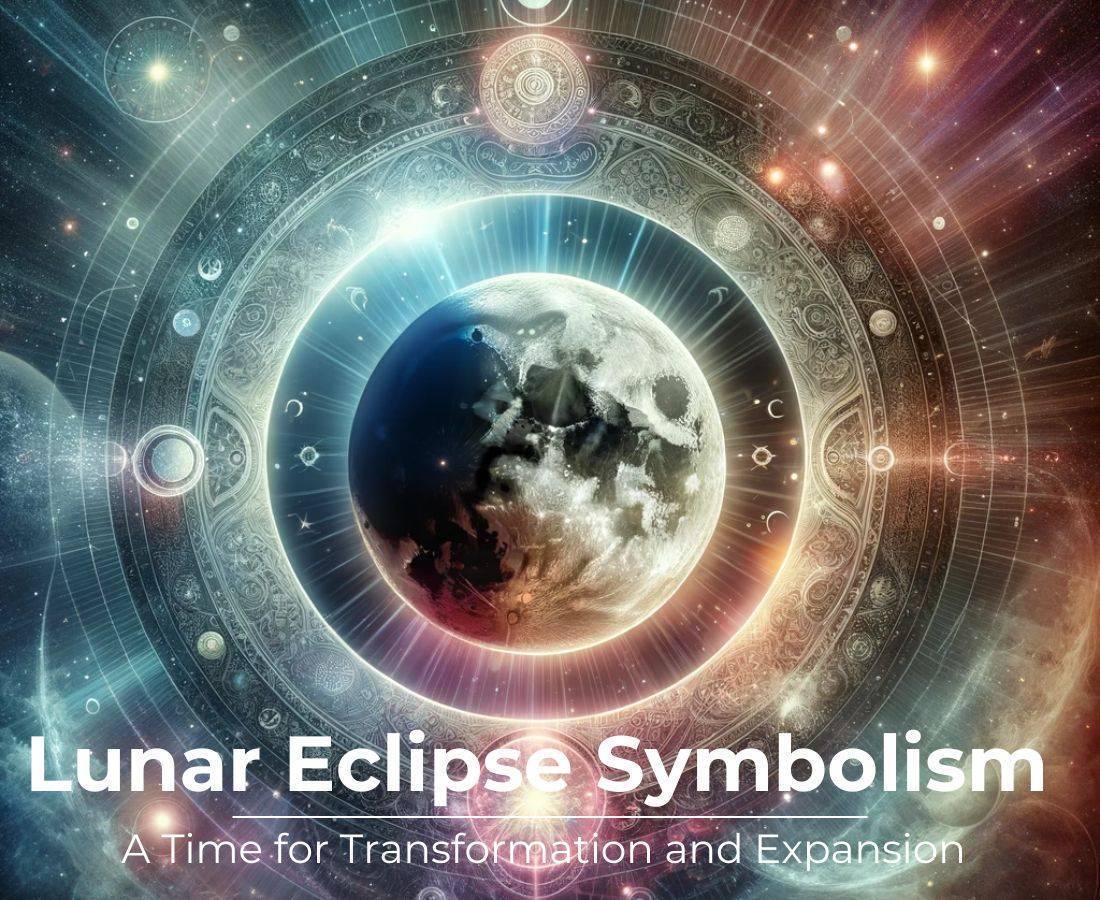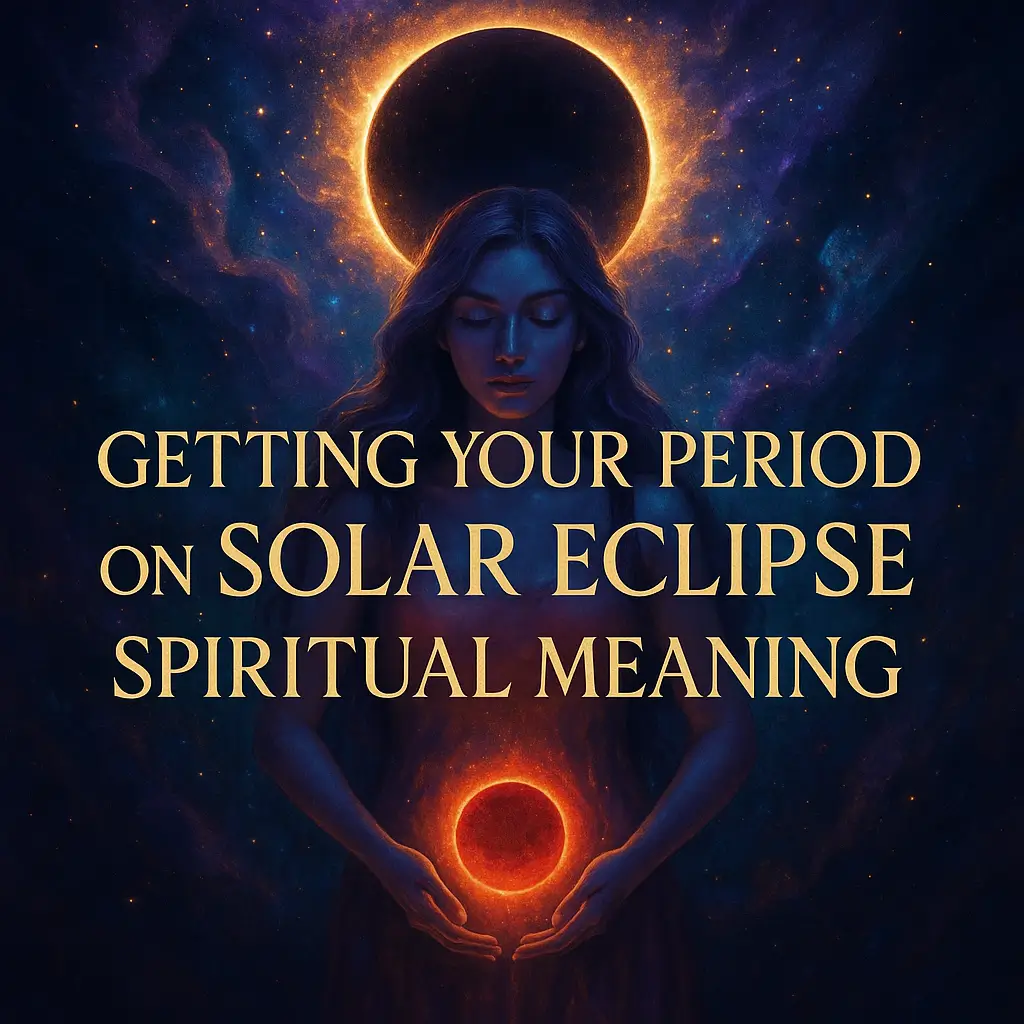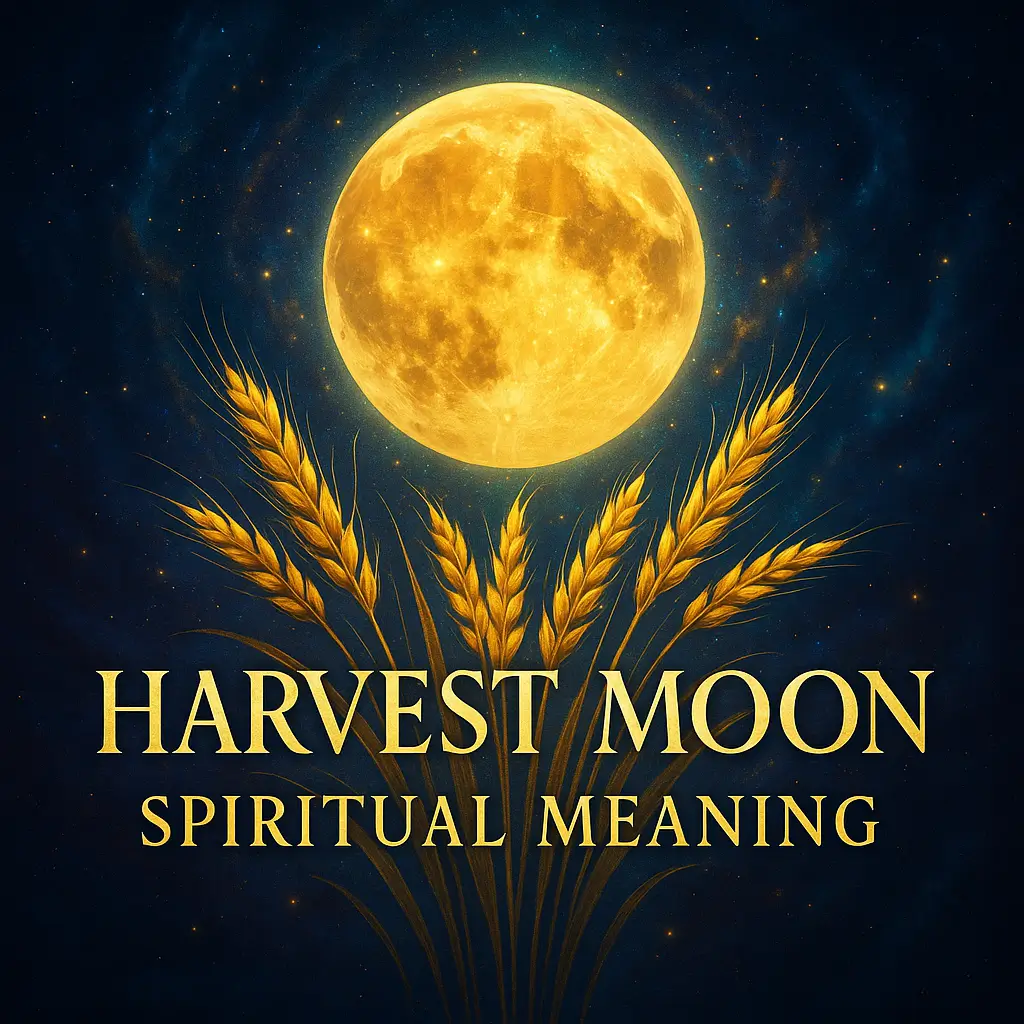The spiritual meaning of a lunar eclipse has captivated human imagination for centuries, weaving tales of transformation and renewal. Imagine standing under a night sky, witnessing the moon’s luminous glow suddenly shrouded in shadow – a celestial dance that speaks to our deepest spiritual instincts.
This article delves into the profound symbolism of lunar eclipses, exploring how these rare events are not just astronomical phenomena but deeply spiritual experiences. From their impact on human emotions to their significance in various cultures and beliefs, we’ll explore why lunar eclipses are seen as powerful times for introspection, change, and spiritual awakening.
Stay with us as we unveil the mysteries of lunar eclipses and their ability to stir the soul and inspire the mind.
Table of Contents
- 1 Key Points
- 2 Exploring Spiritual Lessons from Lunar Eclipses
- 3 Lunar Eclipses in Ancient Civilizations: A Cultural Perspective
- 4 Lunar Eclipse in Astrology and Spirituality
- 5 Lunar Eclipse Rituals: Harnessing Celestial Energy
- 6 Conclusion
- 7 Different terms of lunar Eclipses
- 8 Frequently Asked Questions
- 8.1 What is the spiritual meaning of a lunar eclipse?
- 8.2 How do lunar eclipses affect emotions and intuition?
- 8.3 Why did ancient civilizations believe lunar eclipses were significant?
- 8.4 What role do lunar nodes play in eclipse astrology?
- 8.5 What are common lunar eclipse rituals for spiritual growth?
- 8.6 How does a lunar eclipse differ from a solar eclipse spiritually?
- 8.7 What does the blood moon symbolize spiritually?
- 8.8 How do lunar eclipses connect us to the universe?
- 8.9 What is the significance of the lunar eclipse cycle?
- 8.10 How can I harness lunar eclipse energy for personal transformation?
Key Points
- They symbolize transformation and invite introspection for personal growth.
- Various civilizations have imbued lunar eclipses with deep spiritual significance.
- Practices include releasing the old, setting intentions, and connecting with the divine.

Exploring Spiritual Lessons from Lunar Eclipses
Lunar eclipses have long been a source of spiritual symbolism and lessons across various cultures and beliefs. They’re moments that invite introspection and transformation, offering profound teachings about the nature of life and the universe.
Embracing Change
Lunar eclipses symbolize significant change and transformation. They remind us that change is an inevitable part of life, encouraging us to embrace it rather than resist.
During these times, the universe nudges us to step out of our comfort zones and adapt to new circumstances, fostering resilience and flexibility. The cyclical return of the moon’s light reassures us that after every period of darkness, there is light and renewal.
The Power of Release
Eclipses are often seen as ideal times for releasing old patterns, emotions, or attachments that no longer serve us. Just as the moon passes through a period of obscurity, it invites us to let go of past burdens and make space for new beginnings and experiences.
This process of release can be deeply cathartic, leading to spiritual cleansing and emotional healing. It’s a reminder that letting go is an essential step toward growth and renewal.
Reflection and Introspection
The obscured moon during a lunar eclipse provides a unique opportunity for deep reflection and introspection. It’s a time to look inward, reassess our paths and choices, and gain clarity on our deeper desires and dreams, paving the way for more aligned and conscious living.
These moments of stillness and quietude are crucial for personal growth, offering a chance to realign with our true selves and our life’s purpose.
Connection with the Universe
Lunar eclipses highlight the interconnectedness of all things in the universe. Observing this celestial event can deepen our understanding of our place in the cosmos, enhancing our sense of connection with the wider universe and fostering a feeling of unity with all of existence.
It’s a powerful reminder that we are not isolated beings but part of a larger, intricate tapestry of life that extends beyond our immediate perception.
Cycle of Life and Renewal
The cyclical nature of lunar eclipses, where the moon re-emerges from the earth’s shadow, symbolizes the cycle of life, death, and rebirth. It teaches us about the continuous flow of life and the ongoing process of renewal and regeneration that is inherent in all aspects of existence.
This eternal cycle mirrors the ebb and flow of our own experiences, reminding us that every ending is a precursor to a new beginning, and each phase of life is a step in our evolutionary journey.
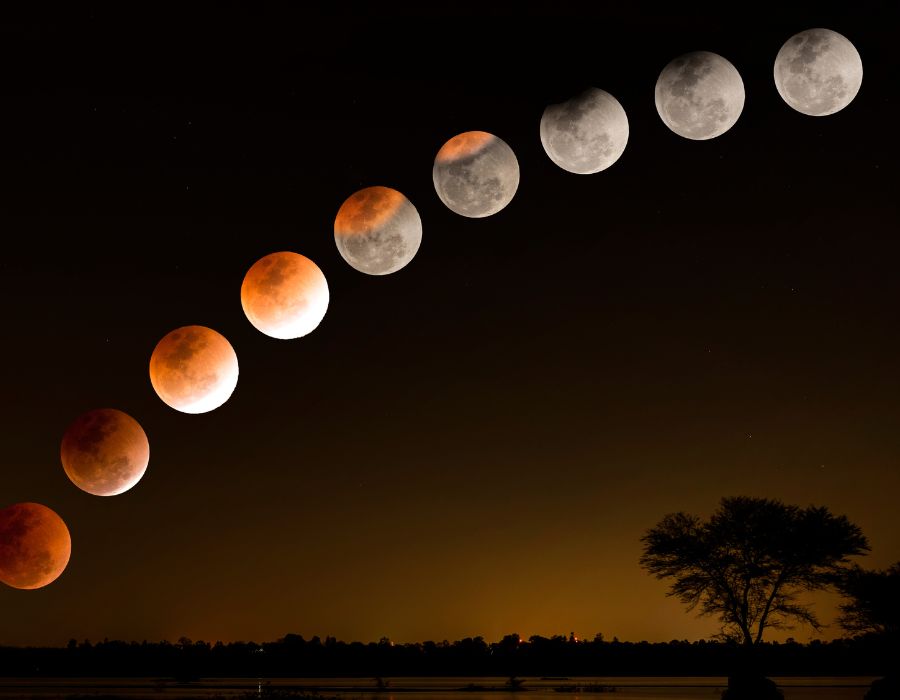
Lunar Eclipses in Ancient Civilizations: A Cultural Perspective
Throughout history, civilizations across the globe have imbued lunar eclipses with profound significance, ranging from omens and portents to symbols of rebirth and transformation. This deep-rooted cultural legacy reflects the universal human fascination with celestial phenomena.
Ancient Mesopotamia
In Ancient Mesopotamia, lunar eclipses were considered powerful omens, particularly for their leaders and kingdom. The Mesopotamians, known for their astronomical prowess, meticulously recorded these events.
They believed that eclipses could predict the fate of their rulers and were a sign of potential hardships or blessings from the gods.
Ancient Greeks
The Ancient Greeks, with their rich pantheon of gods, saw lunar eclipses as significant cosmic events that could foretell future happenings. They often interpreted these eclipses as messages or warnings from the deities.
Philosophers and astronomers like Aristotle and Ptolemy studied eclipses, seeking to understand their underlying principles.
Ancient Chinese
For the Ancient Chinese, a lunar eclipse was a dramatic event where a celestial dragon was believed to be consuming the moon. This interpretation led to various rituals and public ceremonies aimed at chasing away the dragon to restore the moon’s light.
Eclipses played a crucial role in the Chinese understanding of astronomy and cosmology.
Mayan Civilization
The Mayans, renowned for their sophisticated astronomical systems, incorporated lunar eclipses into their complex calendars. They believed these eclipses were significant for their prophetic insights and were part of the celestial cycle that governed the natural world and human affairs.
Ancient Egyptians
In Ancient Egypt, the lunar eclipse had a mythological interpretation, often seen as the moon being swallowed by a sow, a symbol linked to the sky goddess Nut. This event was associated with themes of rebirth and renewal, reflecting the cyclical nature of life and the heavens.
Medieval Europe
In Medieval Europe, lunar eclipses were often wrapped in superstition and linked to ominous events. They were sometimes believed to predict the health of a king or signal impending natural disasters.
This period was marked by a blend of scientific inquiry and mystical interpretation of celestial events.
Indigenous American Tribes
Various Indigenous American tribes held diverse beliefs about lunar eclipses. Some tribes saw them as times of cleansing and renewal, while others viewed them as foreboding or sinister events. These interpretations were deeply embedded in the tribes’ spiritual and cultural traditions.
Hinduism
In Hindu culture, lunar eclipses hold a significant place, often associated with rituals and purifications. They are linked to the mythology of Rahu and Ketu, celestial entities from Hindu astrology.
Eclipses are considered important times for spiritual practices and self-reflection.
Lunar Eclipse Historical Overview
| Civilization | Cultural Perspective on Lunar Eclipses |
|---|---|
| Ancient Mesopotamia | Viewed as omens, especially for leaders; believed to predict rulers’ fates. |
| Ancient Greeks | Seen as cosmic events with divine messages, studied by philosophers. |
| Ancient Chinese | Interpreted as a celestial dragon consuming the moon, leading to rituals. |
| Mayan Civilization | Incorporated in calendars, considered prophetic and significant. |
| Ancient Egyptians | Symbolized by the moon being swallowed by a sow, indicating rebirth. |
| Medieval Europe | Wrapped in superstition, linked to health of kings and natural disasters. |
| Indigenous American Tribes | Diverse beliefs, ranging from cleansing to foreboding events. |
| Hinduism | Associated with rituals, purifications, and celestial entities Rahu and Ketu. |
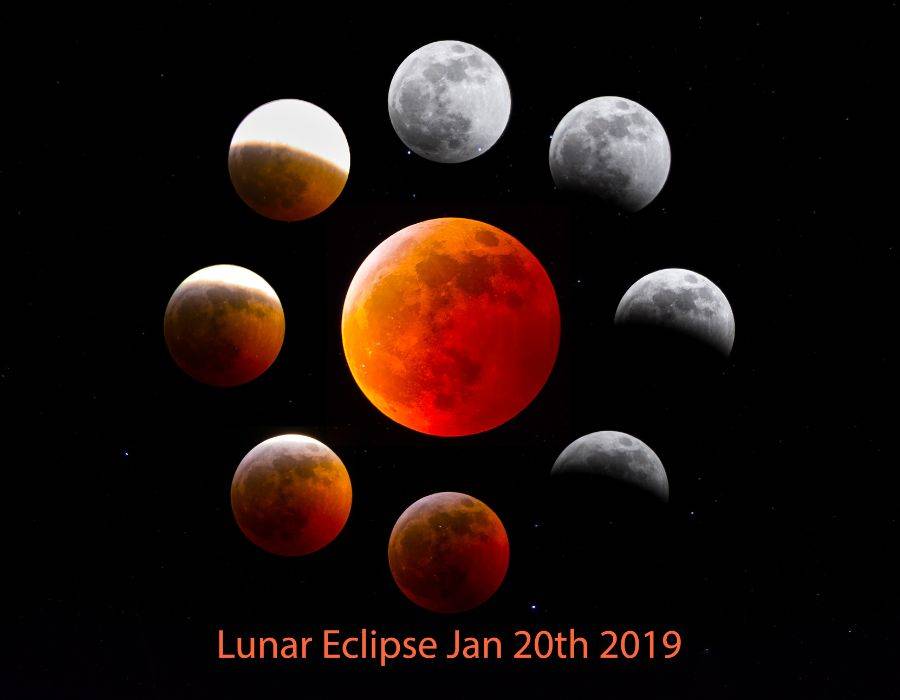
Lunar Eclipse in Astrology and Spirituality
Lunar eclipses have long been veiled in an aura of mystery and transformation, holding a special place in both astrology and spirituality. Let’s dive into their symbolic significance and the lessons they impart.
Symbol of Major Change and Transformation
In the realm of astrology, a lunar eclipse is viewed as a harbinger of change and personal transformation. As the moon dims and reemerges, it symbolizes the end of one chapter and the dawn of another in our lives.
This cosmic event is seen as a powerful time for introspection, leading to significant shifts in perspective and life direction.
Role of Lunar Nodes in Astrology
The lunar nodes, namely the North Node (destiny) and South Node (past), play a crucial role during an eclipse. An eclipse occurs when the sun, earth, and moon align with these nodes, triggering fateful events and karmic lessons.
This alignment is considered a time when the veil between the physical and spiritual worlds is thinnest, amplifying the potential for profound spiritual experiences and growth.
Varieties of Eclipses and Their Spiritual Interpretations
| Type of Eclipse | Spiritual Meanings |
|---|---|
| Lunar Eclipse | Symbol of change and transformation, releasing old patterns, introspection, heightened spiritual activity, personal growth, and renewal. |
| Solar Eclipse | Represents new beginnings, self-reflection, internal growth, and the silencing of external influences, emphasizing the power of introspection. |
| Total Lunar Eclipse | Often seen as a time of heightened intuition and emotional insights, amplifying the subconscious and bringing hidden truths to light. |
| Partial Lunar Eclipse | Suggests a time for partial changes or adjustments, focusing on specific areas of life rather than complete transformation. |
| Total Solar Eclipse | Marked as a powerful moment for manifesting intentions, setting new goals, and a deep spiritual reset, signifying major life shifts. |
Lunar Eclipse Rituals: Harnessing Celestial Energy
Lunar eclipses, with their profound spiritual significance, are often accompanied by various rituals across different cultures and spiritual practices. These rituals are designed to harness the unique energy of the lunar eclipse, facilitating personal growth, transformation, and healing.
Rituals for Release and Letting Go
One of the most common themes during a lunar eclipse is the concept of releasing and letting go. Many people choose this time to shed old habits, negative emotions, or toxic relationships.
Rituals might include writing down these aspects on paper and then burning it, symbolizing the release of these energies. Meditation focused on letting go is also a popular practice.
Cleansing and Purification Rituals
Cleansing rituals are performed to purify the mind, body, and soul, aligning with the lunar eclipse’s energy of renewal. This might involve a ritual bath, using herbs, salts, and essential oils known for their purifying properties.
Smudging with sage or palo santo to cleanse the home and personal aura is another common practice.
Intention Setting and Manifestation
The lunar eclipse is seen as a potent time for setting intentions and manifesting desires. People often meditate on their goals and aspirations, visualizing them coming to fruition.
Creating a vision board or an altar with symbols representing these intentions can amplify the ritual.
Connecting with the Divine
Many use the time of a lunar eclipse to deepen their spiritual connection. This can be through prayer, chanting, or participating in a group ceremony. The idea is to feel a deeper sense of unity with the universe and the divine energies.
Reflection and Meditation
Given the introspective nature of lunar eclipses, dedicating time to reflect on personal growth, life paths, and spiritual journey is a valuable practice. Guided meditations specifically designed for lunar eclipses can help in navigating these reflections.
Conclusion
In essence, lunar eclipses offer more than a spectacular celestial event; they are gateways to profound spiritual insights and transformation. Throughout history, civilizations have revered these occurrences, embedding them with rich symbolism and rituals.
From letting go of the past to setting intentions for the future, lunar eclipses encourage us to embrace change, seek inner growth, and connect more deeply with the universe. They remind us of the cyclical nature of life and our place within these cosmic rhythms.
Embracing the lessons and energies of lunar eclipses can lead to significant personal and spiritual development.
Different terms of lunar Eclipses
A lunar eclipse can be described using various terms, each highlighting different aspects of this astronomical phenomenon:
- Shadow Eclipse: Emphasizing the Earth’s shadow obscuring the Moon.
- Blood Moon: Highlighting the reddish color the Moon often takes on during a total lunar eclipse. (see also post: blood moon symbolism)
- Umbral Occultation: Focusing on the immersion of the Moon into the Earth’s umbra, the darkest part of its shadow.
- Selenehelion: A poetic term, combining ‘Selene’ (Greek goddess of the Moon) with ‘eclipse’.
- Penumbral Eclipse: Specifically referring to when only the penumbra, the lighter part of Earth’s shadow, covers the Moon.
- Earth’s Shadow Event: A straightforward description focusing on the Earth’s role in the eclipse.
- Red Moon Eclipse: Another term to describe the reddish appearance of the Moon during a total lunar eclipse.
- Celestial Alignment: Referring to the alignment of the Sun, Earth, and Moon that causes the eclipse.
- Nocturnal Shadow Play: A poetic term emphasizing the interplay of shadows during the eclipse, especially visible at night.
- Lunar Obscuration: A technical term describing the obscuring of the Moon by the Earth’s shadow.
Frequently Asked Questions
What is the spiritual meaning of a lunar eclipse?
Lunar eclipses symbolize transformation, renewal, and introspection. Spiritually, they represent periods of release from old patterns, deeper self-reflection, and cosmic alignment that facilitates personal growth and spiritual awakening during times of profound change.
How do lunar eclipses affect emotions and intuition?
Lunar eclipses amplify emotional sensitivity and intuitive abilities. The veil between physical and spiritual realms thins during eclipses, heightening subconscious awareness and bringing hidden truths to the surface, intensifying emotional insights and spiritual clarity.
Why did ancient civilizations believe lunar eclipses were significant?
Ancient cultures viewed lunar eclipses as cosmic omens predicting fate, divine messages, or celestial transformations. Mesopotamians believed they predicted rulers’ destinies, Chinese saw dragon mythology, while Egyptians associated them with rebirth and renewal cycles.
What role do lunar nodes play in eclipse astrology?
The North Node (destiny) and South Node (past) align during eclipses, triggering karmic lessons and fated events. This celestial alignment is considered potent for spiritual experiences, soul evolution, and accessing karmic wisdom for personal transformation.
What are common lunar eclipse rituals for spiritual growth?
Popular practices include releasing old patterns through writing and burning, cleansing rituals with sage or salt baths, meditation, intention-setting, vision board creation, and connecting with divine energies through prayer or group ceremonies during the eclipse.
How does a lunar eclipse differ from a solar eclipse spiritually?
Lunar eclipses emphasize release, completion, and emotional culmination, while solar eclipses represent new beginnings and internal reflection. Lunar eclipses illuminate hidden aspects; solar eclipses initiate fresh chapters and manifest new intentions forward.
What does the blood moon symbolize spiritually?
The blood moon’s reddish hue during total lunar eclipses symbolizes heightened intuition, emotional intensity, and powerful transformation. It represents life-force energy, passion, and the amplification of subconscious messages emerging into conscious awareness.
How do lunar eclipses connect us to the universe?
Lunar eclipses highlight cosmic interconnectedness and our place within larger universal rhythms. Witnessing this celestial event deepens awareness of being part of an intricate tapestry of existence, fostering unity consciousness and spiritual perspective beyond individual perception.
What is the significance of the lunar eclipse cycle?
The lunar eclipse cycle mirrors life’s eternal rhythm of death and rebirth. It symbolizes continuous renewal, transformation, and flow—teaching that endings precede beginnings, darkness gives way to light, and every life phase contributes to spiritual evolution and growth.
How can I harness lunar eclipse energy for personal transformation?
Harness eclipse energy through focused meditation, journaling insights, releasing limiting beliefs, setting aligned intentions, and performing cleansing rituals. This potent cosmic window amplifies manifestation abilities and facilitates profound inner shifts when intentions align with authentic spiritual purpose.
